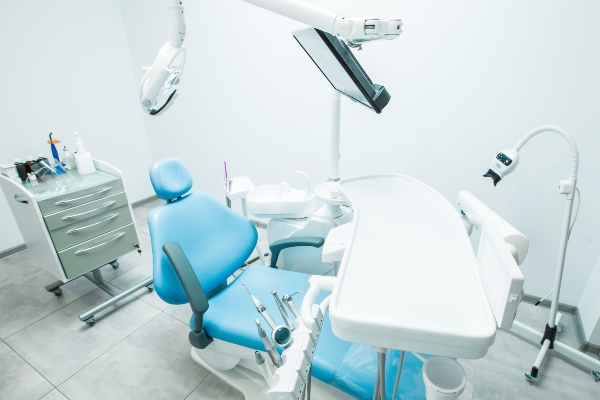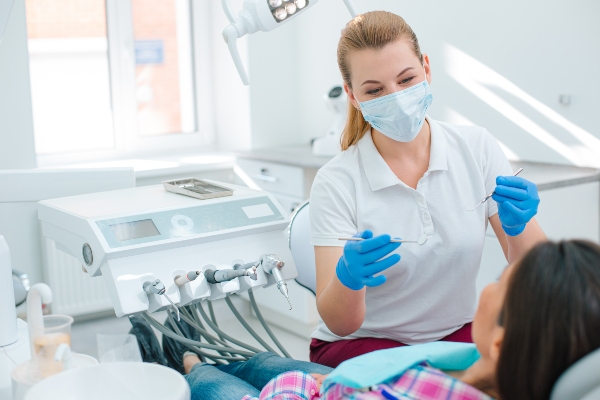How to Avoid Complications With Invisalign®
In Everett,
Invisalign® dentists have been offering a clear, convenient alternative to braces since the FDA approved the product in 1998. Using a transparent, incremental system of aligners Invisalign
® gradually adjusts the teeth to leave you with a perfectly straight smile. The trays are designed to gradually shift teeth in place and have been recognized by orthodontists as a great option to help transform your smile. Since there is not the inconvenience that comes with traditional braces, the option of using
Invisalign® has become vastly popular across the country. It is, however, important to note that there are risks associated with using Invisalign
®, making it important to work with an expert dentist.As a professional Invisalign
® dentist, we will make you fully aware of some of the risks associated with Invisalign
®. They are minor in comparison to the good they can do for you, but are important for you to know in order to make an informed decision and to understand the importance of working with an expert.
- Tooth Vitality: If you have experienced a previous injury to the teeth, there is a possibility that the Invisalign® treatment could damage or kill the nerves. If we find that there is damage to the nerve, we may recommend that you get an endodontic treatment like a root canal or restorative surgery first.
- Crowns and fillings: Since Invisalign® covers the teeth with a tray that is designed to adjust the teeth, there is always a chance that fillings get dislodged, or a crown may become damaged. If a crown is damaged or a filling happens to fall out you will need to get a replacement or repair.
- Discomfort: Dental tenderness is very common with first-time users of. We advise patients to expect some scratching of the cheeks, gums, and lips. This discomfort will typically last a few days while you are getting used to having a foreign object in your mouth. Afterwards, you should feel comfortable during the rest of your treatment.
- Root resorption: Invisalign® has to cause a cellular response in the roots of the teeth in order to let them move. On rare occasions, it is possible for the cellular response to damage the ends of the roots of the teeth. The teeth can also become damaged after the treatment if you lose gum support or gone due to a periodontal disease, and if there was root resorption during the treatment. Having your teeth cleaned at least twice a year while straightening your teeth, will help to prevent this from happening.
- Temporomandibular Joints (TMD): In some cases, the patient may have a reaction that includes pain in the jaw joints, headaches, and ear problems associated with TMJ. Temporomandibular Joint disorder will also cause your jaw to feel stuck, difficulty opening your mouth wide, swelling, and a tired feeling in your face. The risk of TMJ symptoms is greater with traditional braces. If you experience jaw pain now, let us know so we can discuss whether straightening your teeth would make those symptoms worse.
These complications are less not very common, but it is important to take preventative steps to ensure that they do not occur. We will make sure to keep an eye on any conditions that might develop. If you are straightening your teeth now, make sure to inform your dentist if you start to experience any of the above-mentioned symptoms. The average treatment takes 13 ½ months, so it is important to keep us, your dentist informed should any symptoms arise.
Recent Posts
Having crooked teeth or an improper bite can affect a person’s dental health and smile, but an Invisalign® dentist can help patients achieve a straighter smile for years to come. Before beginning, patients first have a consultation with a dentist to learn more about the process. Asking questions is important for allowing patients to feel…
>Invisalign® has become one of the most popular alternatives for braces, serving thousands of people worldwide. The treatment eliminates the use of metal brackets or wiring, making it more discreet, more comfortable and less painful. Furthermore, this state-of-the-art treatment provides results in less time and can be used by teens and adults. The treatment corrects…
To repair misaligned teeth, many dentists recommend Invisalign®. These clear aligners fit over your teeth and gradually move them into the right positions in the mouth. Many people think of teeth-straightening as a treatment only for children and teenagers. But it is a viable way to restore smiles at just about any age. You should…
Taking care of your teeth while using Invisalign® clear aligners is important in order to make sure the treatment goes as planned. The plan itself is just one factor in ensuring that your Invisalign® treatment is a success; learning how to properly maintain and care for your teeth and aligners can make or break treatment…

